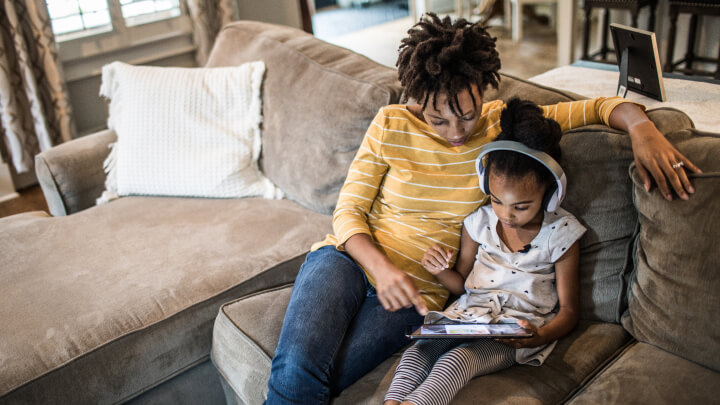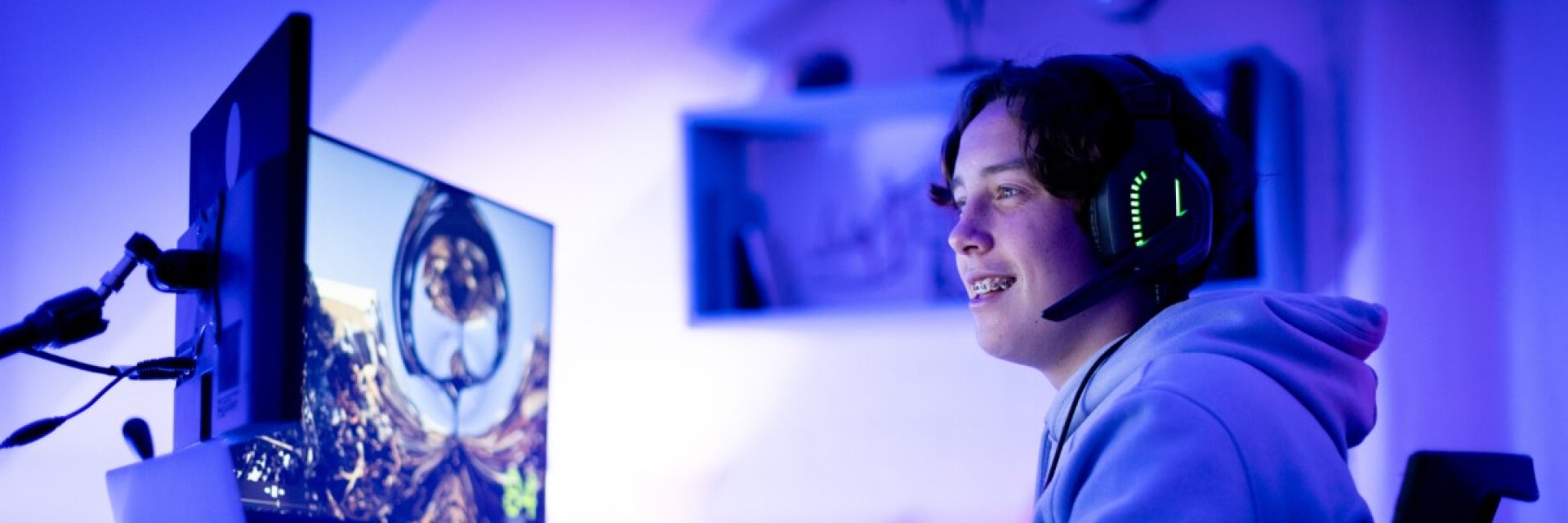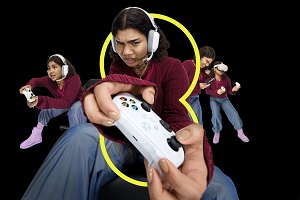According to annual research conducted by Ofcom, gaming on mobile phones, games consoles, tablets and computers is one of the top activities enjoyed online by 5-16 year-olds. And, while there are certainly benefits to gaming – such as improving hand-eye coordination and problem-solving – there are certain risk factors, too, such as addictive behaviours and online bullying, which affects approximately 12 per cent of young people in the UK, according to the UK Safer Internet Centre (UKSIC).
For parents of older children, the impact of gaming can present challenges. Rachael, a mother from London, has a 16-year-old gaming-obsessed son who also has ADHD. When he started playing online games at the age of 11, he would often become angry and aggressive when a game didn’t go his way.
“The situation became terrible,” Rachael says. “He had a tendency of throwing, banging or hitting things when he got frustrated.” Sports-related gaming was even worse. “Boys go mad on it,” she says. “It’s also so addictive and can cost lots if players start buying things on it.”
UKSIC says it’s important that parents are aware of chat functions on online games, which allows gamers to communicate with other players. This can happen via open chat boxes where comments can be typed, while others may only allow a gamer to select from set phrases. Many games also allow public chats where players interact.

“Online bullying can happen in games as well as on social media or messaging apps,” it states on its website. “It could be through unkind comments or messages, or by targeting other players within a game. Most games have reporting and blocking features, which can be used to support a young person who is being bullied online.”
While Rachael found it difficult to control her son’s gaming habit or the way it made him feel at first, she soon started to develop tactics. “We started to put tighter controls on his playtime by keeping the PlayStation in our bedroom, as I also discovered he was playing with people I didn’t know,” she says. Also in quieter moments, Rachael would talk to her son about how it made him feel, and the anger and frustration he was experiencing. “We managed to work through it eventually.”





